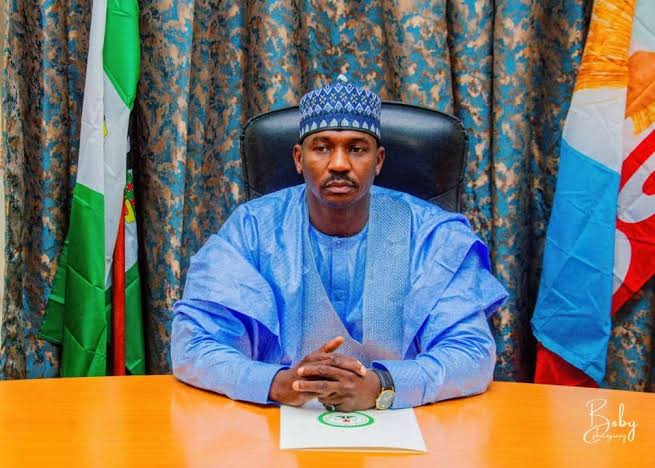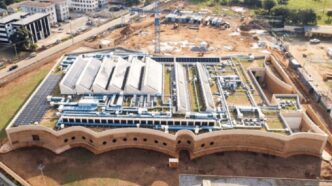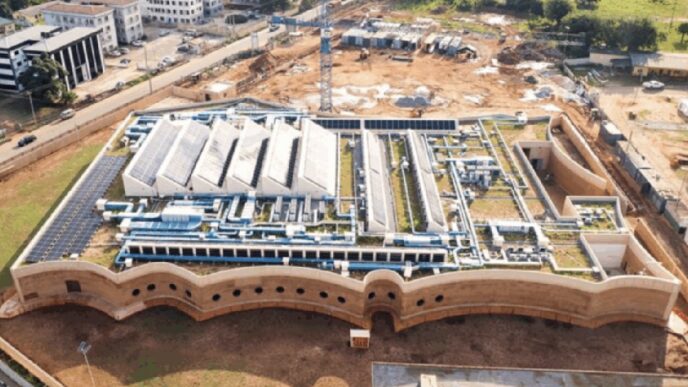Since assuming office in 2023, Governor Ahmed Aliyu has made it a sacred duty to honour both former and serving governors, as well as other distinguished personalities, by inviting them to commission completed projects or to lay the foundation stones for new projects. This deliberate act of recognition goes beyond being courteous; it reflects his humility, maturity, and deep sense of gratitude toward those who have contributed to the development of Sokoto State. In Nigeria where political transitions are often marked by disregard for their predecessors, Governor Aliyu’s approach stands out as a refreshing departure from this norm. His gestures signify respect for continuity in governance and an understanding that leadership is a relay race. By acknowledging that progress is built on the collective efforts of successive administrations, he demonstrates again and again that power has not changed his values or clouded his sense of reasoning.
For Governor Aliyu, development is indeed a 4×4 rally with each leader running his stretch of the race, moving the state forward before passing the baton to the next in the best interest of the people,who are the object of development.
Governor Aliyu, in a remarkable demonstration of goodwill and recognition of service, has invited several distinguished leaders to Sokoto State to commission legacy projects executed by his administration. Former President Chief Olusegun Obasanjo (GCFR) leads the list, with the inauguration of 136 housing units which the state procured from the Federal Government to mark the governor’s one-year anniversary—an N1.8 billion investment aimed at expanding affordable housing for residents and civil servants. Yobe State Governor Mai Mala Buni also graced the state’s second-year anniversary, commissioning multi-billion-naira water projects in Tama, and old Airport, to enhance access to clean water and the Sokoto Geographical Information System (SOGIS), to improve land management.
Other prominent figures like the former Governor of Old Sokoto State, Mallam Yahaya Abdulkarim; Kogi State Governor Ahmed Usman Ododo; Edo State Governor, Senator Monday Okpebholo; and the Minister of Aviation and Aerospace Development, Festus Keyamo (SAN) have also been the guests of the unassuming and amiable governor. Projects commissioned range from rural and urban roads, Jummah mosques to commercial facilities—tangible proof of Governor Aliyu’s commitment to improving the lives of the people. The newly constructed access road to the Sadiq Abubakar III International Airport and the foundation stone for the new protocol lounge further underscore the growing synergy between the Federal and Sokoto State governments in driving development across critical sectors.
The latest dignitary to visit Sokoto State was Navy Captain (rtd.) Abdulrasheed Adisa Raji, who served as the 12th Governor of Sokoto State from 1996 to 1998 during the military administration of General Sani Abacha. His invitation carries profound symbolic weight because it reaffirms a timeless truth that being good is, indeed, good. And that acts rooted in service do inevitably yield enduring rewards of goodwill and honour that outlive the past.
What makes this gesture remarkable is that Governor Ahmed Aliyu stands to gain absolutely nothing politically or personally from it. Captain Raji is neither a native of Sokoto nor a stakeholder in its political future; and cannot vote in the state in the 2027 in Sokoto State,unless he changes his residence. Yet, the governor chose to honour him purely out of appreciation for his service and contributions to the state’s development.
This is certainly unprecedented in Nigeria’s political climate, where self-interest often drives actions, and former leaders are rarely recognised unless they are still politically useful to the incumbent. Successor governments frequently distance themselves from their predecessors, abandoning projects and even erasing their names from plaques. This culture of disconnection has robbed many states of continuity and institutional memory. But in Sokoto, something refreshingly different is happening. Governor Aliyu’s actions underscore his belief that decency and appreciation are values worth upholding, regardless of political expediency.
Before his posting to Sokoto, Captain Raji had served as the Military Administrator of Bauchi State. Whether that state remembers him as their one time leader is uncertain. Born in Abeokuta, Ogun State, Raji’s service to Sokoto is a reminder of an era when national assignments transcended ethnicity and geography, when a Nigerian could serve anywhere and be accepted as one of their own.
Governor Aliyu has every reason to hold his head high. Under his leadership, Sokoto State continues to uphold its reputation as a hospitable and welcoming society, one where tribe, religion, or origin does not determine access to opportunity. His administration has redefined governance as service to all, reaffirming that true progress comes only when every resident feels valued and is included in the state’s development journey.
This spirit of inclusivity is evident in the government’s policy of paying school fees for all pupils and students, regardless of their state of origin, and in constructing roads in areas predominantly inhabited by non-indigenes. These deliberate actions reflect a leadership that’s guided by fairness, empathy, and justice. By ensuring that development reaches every community, Governor Aliyu has shown that Sokoto remains a welcoming home to all.
Raji’s return to Sokoto, decades after his tenure, to commission the newly completed 14-kilometre rural road in Gwadabawa Local Government Area, was more than a homecoming. Witnesses noted the emotion on his face and the joy of being remembered over the recognition of his contributions, however long ago, had not been forgotten. For a man who governed during challenging years in Nigeria’s history, such remembrance has no doubt been profoundly fulfilling.
No wonder Captain Raji expressed deep appreciation for the honour. His praise of Governor Aliyu for what he described as “a record of impactful governance and visible transformation across the state” carries a significant weight, coming from someone that has been there before. “You have moved Sokoto from step four to step eight. I’m sure very soon it will reach step ten,” he declared. He lauded the governor’s urban renewal initiative as “a major facelift for the state capital,” and expressed delight with the “renewal projects from the airport up to the city centre.” His words, simple yet powerful, captured the essence of what many citizens already know that Sokoto State is on a new path of development.
Beyond the praise, Raji also offered a deeper message on the need for continuity in governance, new leaders building on existing policies and programmes for the collective good. Thankfully, that remains the hallmark of Governor Aliyu’s leadership. His appeal to the people to support the governor in sustaining the present momentum is spot on. His commendation of Senator Aliyu Wamakko, whom he described as “a good man whose leadership and wisdom continue to inspire many,” was another reminder of how genuine respect among leaders and appointees can nurture lasting friendship.
Indeed, nothing in life is permanent. Power and positions are transient; and what endures is character and how one treats others while in authority. A fitting example of this eternal truth lies in the relationship between Senator Wamakko and Navy Captain Raji. Wamakko, today one of Nigeria’s most influential political figures, once served under Raji as a Permanent Secretary. Yet, rather than allowing the dynamics of power to create a distance, mutual respect and cordiality flourished into what has become a lasting friendship a reminder that humility and good conduct will always outlive the offices we hold.
The projects being unveiled across Sokoto State speak for themselves. From rehabilitated township and rural roads that connect isolated communities, to modern schools providing quality education, and upgraded healthcare facilities serving mothers and children, the transformation taking place is visible. Governor Aliyu’s projects are not just physical structures; they are investments in the people and in the future. Each new road shortens the distance between poverty and opportunity; each school stands as a beacon of hope; each healthcare centre strengthens the social fabric of once-neglected communities – these are the impact of his projects.
By recognising past leaders, Governor Aliyu is building bridges and reminding Nigerians that appreciation of service by former leaders is not weakness, but wisdom. His inclusive approach has and would continue to attract goodwill, strengthen inter-state partnerships, and boost Sokoto’s image as a state open to cooperation, and investment. The presence of governors from Kebbi, Kogi, Edo, and Yobe at various times sends a message of solidarity and peer group review. It also shows that leadership, when guided by humility and respect, can transcend geography and partisanship.
For Raji, it was a moment of validation; for Governor Aliyu, a moment of grace. The symbolism was unmistakable, that leadership when exercised with sincerity, leaves footprints that time can never erase. In an era when politics too often divides, the governor’s example proves that gratitude unites. When leaders choose appreciation over antagonism, the dividends of democracy multiply – not just in projects, but in trust, in hope, and in the hearts of the people. Governor Ahmed Aliyu’s example reminds us that governance is not about who came first or who comes next, but about service that endures and legacies that uplift generations.
Gatekeepers News is not liable for opinions expressed in this article, they’re strictly the writer’s.








